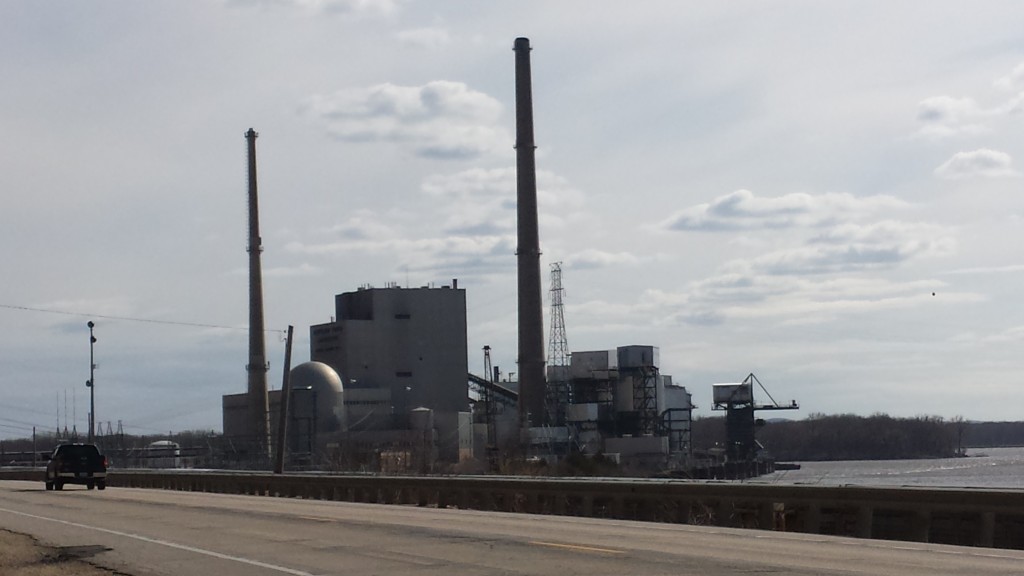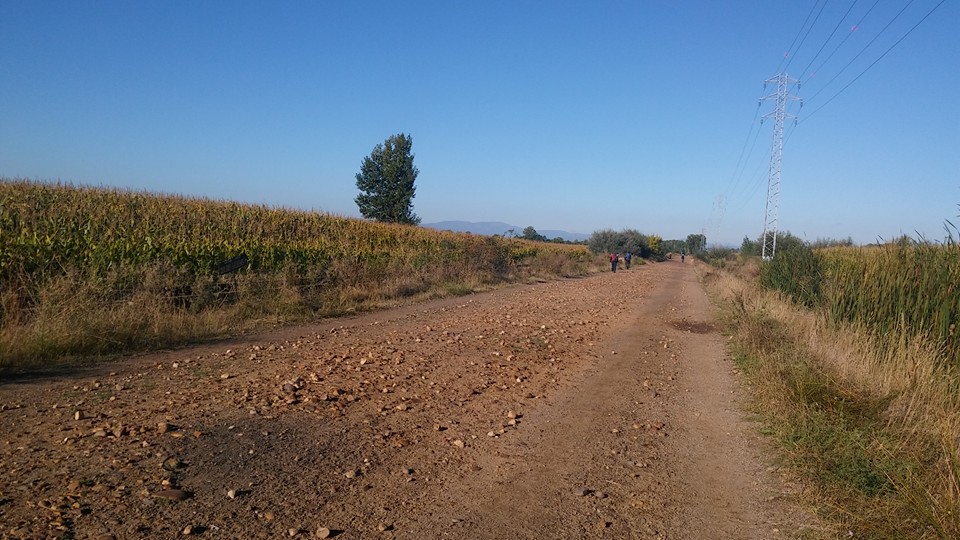Sandpiper-NDPC’s Whale-Eye Inducing Petition
September 21st, 2015
WHAT!?!?! Yes… Really… after the delightful decision from the Appellate Court requiring an Environmental Impact Statement, telling the Public Utilities Commission that an EIS must be completed before a Certificate of Need can be issue, the Applicants dropped Petition. Read this whale-eye inducing filing from North Dakota Pipeline Company, LLC (a/k/a Enbridge) hot off the press:
North Dakota Pipeline Company _ Petition for Rejoinder and Comment Period 20159-114150-03
Here’s the short version:
Once more with feeling, here’s the Appellate Court’s decision:
And the bottom line:
So from this order of the Appellate Court “to complete an EIS” the Applicant now asks for the “need” docket and “routing” docket to be brought back together and to use the “Comparative Environmental Analysis” that the Appellate Court says isn’t sufficient. Yes, that what they’re saying:
What planet is North Dakota Pipeline Company living on? Earth to Mars!!!!! A “CEA” is not sufficient. MEPA requires an EIS. The court told the Public Utilities Commission to complete an EIS. The Court did NOT say to go ahead with a “CEA.”
Not too long ago, Lisa Agrimonti sent around notice that she had moved over to Fredrickson & Byron. $50 says that she’ll be filing Notice of Appearance for this docket!
It’s fall… and almost time for BaronFest
September 21st, 2015
It’s fall, the sun is rising on the other side of the house and bluff now, and I’m not ready! Getting out to enjoy fall as much as possible, and then Little Sadie and I are heading to St. Louis soon for BaronFest III (didn’t have one last year). Maybe down to Arkansas to catch fall later! This is the first BaronFest where I don’t have a German Shepherd, and I’m not sure how Little Sadie will fare.
It’s hard to feel motivated to work with all this transmission going up here in Minnesota. Earlier in the summer, we went down through Wabasha, and south of Wabasha where CapX Hampton – La Crosse cuts across the Mississippi River to Alma, through La Crosse and checked out the Briggs Road substation, host to CapX and Badger Coulee transmission, to Cassville and Dubuque and back up further west, a tour of electric infrastructure.
Don’t they have enough? If they’re shutting down this coal plant, why would they need transmission? How about using that capacity… oh, right, they get that 12.38% or thereabouts for building transmission, that’s their primary revenue source these days!
Time for a break…
Until then, I can vicariously enjoy my SiL’s trek along El Camino, and transmission lines too, in Spain. Go, Jeanne, go!!!
The rulemaking process — nothing changes…
September 13th, 2015
Many thanks to the “little birdie” who brought this decades old report to my attention:
Yes, this is a report from the Minnesota Legislative Auditor from 1993, and if you read it, you’ll see little has changed is so many years… The issues raised are issues we’ve been raising in the Public Utilities Commission rulemaking for Minn. R. Ch. 7849 and 7850 (Certificate of Need and Siting/Routing). AAAAAAAAAAAACK!
For example, from the Summary:
For example, in the PUC Rulemaking for 7849 and 7850 (PUC Docket 12-1246), it’s been an over two-year-long process, and few are showing up anymore. We weigh in, some things are taken into account in the drafts, and then that disappears from the next draft. How can it feel like anything but a colossal waste of time? Yet if we weren’t there, the utilities would get everything they want. And as with the utility Certificate of Need and Siting/Routing processes, rulemaking has the same notice and public participation problems. It’s all the same, deja vu all over again.
… and also from the report …
Does this sound familiar?
So what is the bottom line of this report?
Also, we recommend the following additional changes to the Administrative Procedure Act:
… and …
In addition to changing the APA and other statutes that govern agency rulemaking, we recommend that:
Notice? For utility infrastructure projects? DOH!
September 6th, 2015
 NOTICE!!! Landowners need notice if their land is affected! Local governments and residents need notice if their communities are affected! Yes, posting something can have an impact!
NOTICE!!! Landowners need notice if their land is affected! Local governments and residents need notice if their communities are affected! Yes, posting something can have an impact!
Notice is something that’s been an issue in utility dockets, and transmission proceedings particularly, for a long, long time. It’s something we’re trying to address in the Minn. R. Ch. 7850 in our rulemaking advisory committee meetings over the last TWO PLUS YEARS!
Here are the latest Comments:
Why does notice matter? Well, there’s this thing called “Due Process.” Notice is a fundamental Constitutional Right. It matters because “NOTICE” often doesn’t happen. And it ties in with eminent domain, where land may Constitutionally be taken for public purpose projects with just compensation (and what is a “public” project? What is “just” compensation?) If you aren’t properly informed, have no notice, what does that do to your ability to participate?
In Minnesota, it’s a matter of law, clear, simply stated law:
Looking over posts and filings where this has happened, situations I’ve been aware of where landowners have been surprised at the last minute, too late to meaningfully participate in the proceedings, have filed Motions for Reconsideration, and have been to the Appellate Court on their behalf, it is SO frustrating. Looking at the many times I’ve tried to intervene, to have intervention deadlines extended in case landowners want to stand up, There’s no excuse. People should not be surprised at the last minute with a utility attempt to run transmission over their land.
It happened recently in the Great Northern Transmission Line routing docket:
ALJ Order filed, no RRANT intervention
It happened in CapX Brookings route and on CapX Hampton- La Crosse route:
- Cannon Falls (CapX Hampton- LaX route) example to go around county park and DOT prohibited intersection area:
Cannon Falls Beacon – CapX in the news!
Dakota County resolution about CapX 2020
CAPX APPEAL — DECISION RELEASED (includes Cannon Falls)
UPDATED Updated Minnesota Appeal Update
Initial Brief – St. Paul’s Lutheran School and Church and Cannon Falls Landowners
Reply Brief – Cannon Falls Landowners and St. Paul’s Lutheran School and Church
- Oronoco(CapX Hampton – La X route) enters “new route” proposal without notice to its own landowners:
Oronoco Twp’s Exhibit 89
- USDA’s Rural Utilites Service (CapX Hampton – La X) example:
RUS Reopens Comments on Hampton-LaCrosse
- Myrick Route (CapX Brookings) example:
Myrick route withdrawn
Myrick Route & How to find things on PUC site
- In particular this “Notice” which went out after all the hearings were over with no way to participate at all: Dec 30 Notice – Myrick Route
PUC chooses Belle Plaine crossing
- This is important to understand the set-up, and now this notice was snuck in at the last minute due to Applicant and Commerce disregard for objections of DOT, DNR and USFWS.
That’s enough examples to get an idea of the problem… but there are more that I can trot out if necessary. The notice provisions in Minnesota law and rule must be corrected.
Muller: Time to think about…
August 23rd, 2015
Commentary by Alan Muller, Green Delaware, in today’s Delaware State News:
Commentary: Time to think about Delaware’s Peterson, Coastal Zone Act
So what about this Coastal Zone Act? What makes it special and worth preserving.
Alan Muller is Executive Director of Green Delaware.











